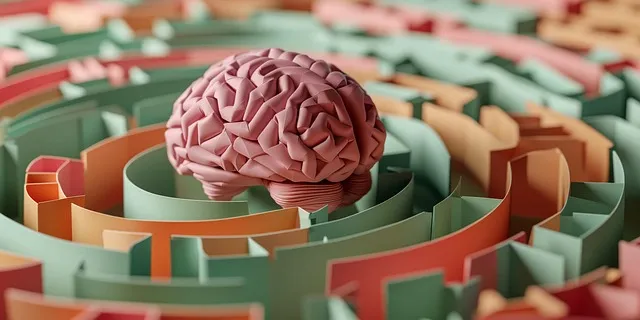Broomfield Kaiser Permanente mental health facility prioritizes mood regulation through tailored strategies, integrating CBT, mindfulness, meditation, lifestyle modifications, and holistic practices. They empower patients with self-management tools, education, and support to identify triggers, adopt healthy coping mechanisms, and build resilience. This comprehensive approach focuses on evidence-based practices, individualized attention, and collaborative support systems for enhanced emotional stability and improved quality of life.
Mood regulation strategies are essential for maintaining emotional balance and overall well-being. In this comprehensive guide, we explore various techniques and practices employed by professionals at Broomfield Kaiser Permanente Mental Health Facility to help individuals manage their moods effectively. From cognitive behavioral techniques to mindfulness, lifestyle modifications, and the importance of support systems, discover how these strategies can transform lives, offering a holistic approach to mental health care tailored for optimal mood stability.
- Understanding Mood Regulation: Unraveling Emotional Balance at Broomfield Kaiser Permanente Mental Health Facility
- Cognitive Behavioral Techniques: A Powerful Tool for Managing Moods
- Mindfulness and Meditation Practices: Cultivating Calm and Clarity
- Lifestyle Modifications: The Role of Diet, Exercise, and Sleep in Mood Stability
- Support Systems and Therapy: Building Resilience Through Connection
Understanding Mood Regulation: Unraveling Emotional Balance at Broomfield Kaiser Permanente Mental Health Facility

At Broomfield Kaiser Permanente mental health facility, understanding mood regulation is a cornerstone of their comprehensive approach to patient care. Mood regulation involves managing and stabilizing emotions, which can significantly impact overall well-being. The facility recognizes that each individual’s emotional balance is unique, necessitating tailored strategies. By integrating various techniques such as communication strategies and mental wellness journaling exercises, the team at Broomfield Kaiser Permanente aims to empower patients with effective tools for self-management.
Mental health awareness plays a pivotal role in this process. Through education and support, individuals learn to recognize triggers, identify healthy coping mechanisms, and develop resilience. The facility’s dedicated professionals guide patients through this journey, offering evidence-based practices that foster emotional stability and enhance quality of life. This holistic approach ensures that each patient receives the individualized attention they need to navigate their unique emotional landscape successfully.
Cognitive Behavioral Techniques: A Powerful Tool for Managing Moods

Cognitive Behavioral Techniques (CBT) have emerged as a powerful tool in the arsenal of Broomfield Kaiser Permanente mental health facility, offering effective strategies for managing moods and emotional well-being. CBT is rooted in the Mind Over Matter principles, focusing on identifying and challenging negative thought patterns and replacing them with more positive and realistic ones. This approach not only helps individuals understand their emotions but also empowers them to take control of their thoughts, leading to significant improvements in mood regulation.
By integrating Self-Esteem Improvement techniques within CBT, mental health professionals at Broomfield Kaiser Permanente can help clients build resilience against emotional turmoil. Risk Management Planning is another crucial aspect, enabling practitioners to guide individuals in preparing for and managing high-risk situations that may trigger adverse moods or behaviors. This holistic approach ensures that patients gain practical tools to navigate their emotional landscape effectively, fostering a greater sense of control and well-being.
Mindfulness and Meditation Practices: Cultivating Calm and Clarity

At the Broomfield Kaiser Permanente mental health facility, mindfulness and meditation practices have emerged as powerful tools for managing mood and cultivating mental wellness. These ancient techniques encourage individuals to focus on the present moment, observing their thoughts and emotions without judgment. Through regular practice, one can achieve a sense of calm and clarity, enabling better decision-making and emotional regulation.
Meditation, in particular, has been shown to reduce stress levels and alleviate symptoms associated with trauma. The mental wellness journal is another effective tool that combines mindfulness with self-reflection. By jotting down thoughts and feelings, individuals can gain valuable insights into their emotional patterns, track progress over time, and receive guidance on implementing effective stress management strategies. This holistic approach, offered by the Broomfield Kaiser Permanente mental health facility, empowers patients to take proactive steps towards enhancing their mental health and overall well-being.
Lifestyle Modifications: The Role of Diet, Exercise, and Sleep in Mood Stability

Lifestyle modifications play a pivotal role in achieving and maintaining mood stability, especially for individuals seeking support at Broomfield Kaiser Permanente mental health facility. Diet significantly impacts brain chemistry, with certain foods enhancing mood and cognitive function. Incorporating nutrient-rich, balanced meals into daily routines can help regulate serotonin and dopamine levels, crucial neurotransmitters linked to well-being and happiness.
Regular exercise is another powerful tool in the quest for stable moods. Physical activity stimulates the release of endorphins, often referred to as “feel-good” hormones, which can reduce stress, anxiety, and symptoms of depression. This effect makes exercise a valuable burnout prevention strategy for healthcare providers, who can benefit from its positive impact on mental health alongside Crisis Intervention Guidance and Mental Health Policy Analysis and Advocacy initiatives. Quality sleep is equally essential; it allows the brain to restore and consolidate memories while regulating emotional responses. Adequate rest supports optimal brain function, contributing to better mood regulation throughout the day.
Support Systems and Therapy: Building Resilience Through Connection

At Broomfield Kaiser Permanente mental health facility, one of the key components in mood regulation strategies is building resilience through strong support systems and therapy. Connection plays a pivotal role in healing and coping mechanisms, fostering an environment where individuals can openly express their feelings and receive non-judgmental support. This collaborative approach empowers patients to navigate emotional challenges more effectively.
Therapy sessions, coupled with practices like compassion cultivation, offer valuable tools for self-care and emotional regulation. Mental Health Policy Analysis and Advocacy also plays a crucial role in ensuring access to these resources, promoting understanding and destigmatization of mental health issues within communities. Through these integrated strategies, the Broomfield Kaiser Permanente facility strives to enhance resilience building, ultimately improving quality of life for its patients.
At Broomfield Kaiser Permanente Mental Health Facility, understanding mood regulation is key to achieving emotional balance. By combining cognitive behavioral techniques, mindfulness practices, lifestyle modifications, and supportive therapy, individuals can effectively manage their moods and lead more fulfilling lives. Incorporating these strategies, as demonstrated by the facility’s innovative programs, offers a holistic approach to mental well-being, providing lasting solutions for those seeking stability and happiness.






